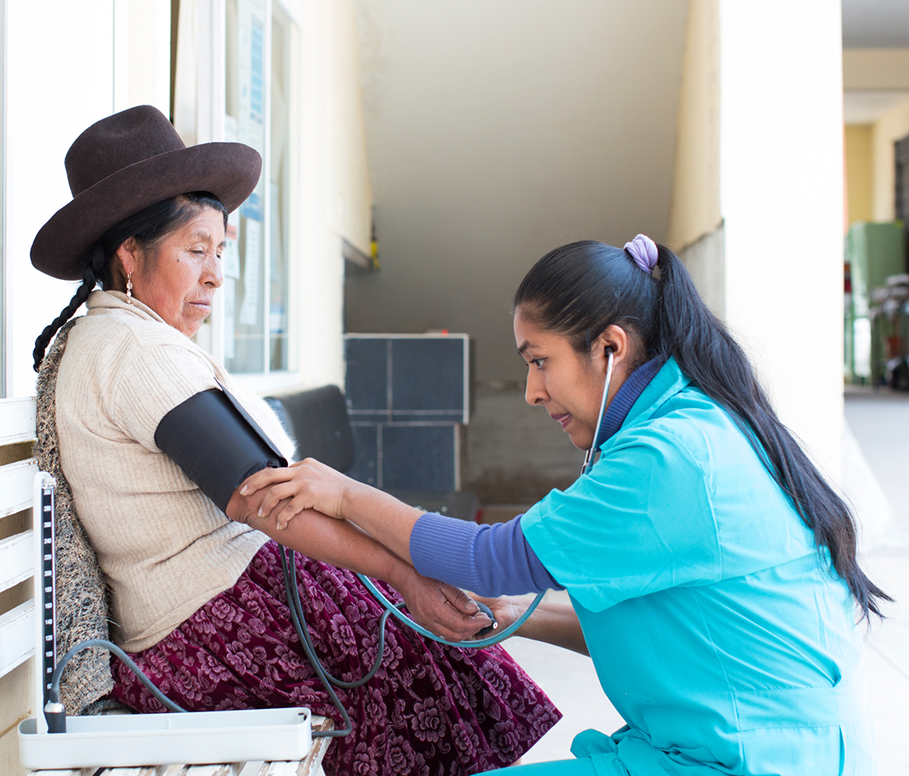Leading up to the World Health Assembly in May, IP Progress will be highlighting the complex barriers impeding patients’ access to life-saving medicines. The World Health Organization (WHO) says that it’s trying to improve access to medicines, yet its work has focused narrowly on controversial policies regarding intellectual property and the price of patented medicines. Global health leaders must insist that the WHO tackle broadly the many obstacles that stand between patients and their medicines, such as poor infrastructure, taxes and tariffs. Inadequate financing for health care is among the most significant barriers.
Innovative medicines hold tremendous promise in treating and curing global communicable and non-communicable diseases; however, one-third of the global population lacks access to even basic, essential medicines. Effective intellectual property protections are key to incentivizing the research and development needed for new cures. Yet most medicines that the WHO deems “essential” are no longer on patent. For this reason, it’s critical that global health leaders address those barriers actually proven to impede access, like poor health financing.
As the World Health Assembly convenes in Geneva next month, health ministers from around the world risk getting mired in decades-old, polarizing arguments about patents. Yet their time would be far better spent focusing on the systematic inability to pay for health care—which is one of the core, cross-cutting challenges keeping both patented and generic medicines out of reach for millions living in middle- and low-income countries.
The impacts of insufficient health financing are multifaceted:
- Public and private payers lack infrastructure and financial security to widely provide health insurance plans
- Already-impoverished individuals and families are forced to pay out-of-pocket, further sinking their poverty level
- Health systems and hospitals lack access to the capital needed to hire experienced staff, maintain facilities and supplies, and/or provide timely, high-quality care
There is an urgent need is for governments and multilateral organizations to address these health financing barriers—particularly in Asia and Africa where nearly 50 percent of the population lacks access to essential medicines.
And recent studies have illustrated the multi-pronged impact that poor health financing has on patients’ access to care in middle and low-income countries.
- In Ghana, for example, researchers found that inability to pay premiums, insufficient funding, and bureaucratic and regulatory inefficiency represent inherent financial obstacles to expanding public and private health coverage. Meanwhile, more than 10 million Ghanaians lack health insurance coverage, Ghana’s income gap is widening, and rates of non-communicable diseases are rising. Without insurance coverage, it’s difficult for Ghana’s citizens to access the medicines and treatments they need.
- In South Africa, high levels of poverty and unemployment, a small tax base, and poor public health funding are inhibiting efforts to expand health insurance coverage. Meanwhile, South Africans suffer from exceptionally high rates of infectious disease—including HIV/AIDS and tuberculosis—as well as high infant and child mortality, a growing prevalence of NCDs, and high rates of violence and injury. Without better financing mechanisms to pay for health care, South Africans will lack access to innovative medicines to improve their health.
- India, a leading emerging market, is another example of a country with weak health financing that impedes patient access to care and treatment. Despite the fact that the country is currently the seventh richest country in the world and likely to fall behind only China and the United States by 2025, the government only spends a little more than 1 percent of its gross domestic product (GDP) on health care, with the bulk of health financing (69 percent) coming from out-of-pocket payments by individuals. As recognized by India’s Draft National Health Policy, “…unless a country spends at least 5-6 percent of its GDP on health and the major part of it is from government expenditure, basic health care needs are seldom met.”
Without a sufficient foundation of health financing, health systems aren’t capable of supporting the level of care required to improve population health, and timely patient access to life-saving therapies is hindered. Nevertheless, at the World Health Assembly in May, some global health leaders will argue that intellectual property must be weakened to improve access to medicines. But such divisive debates miss the point. The World Health Assembly should insist instead that the WHO broaden the conversation and treat all stakeholders – multilateral, public, civil society, and the private sector – as valued partners in finding sustainable solutions. Tackling the barrier of inadequate health financing would be a good place to start.


